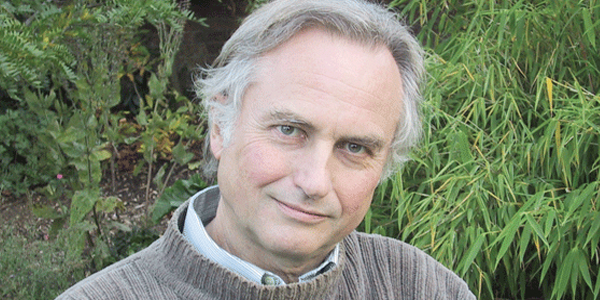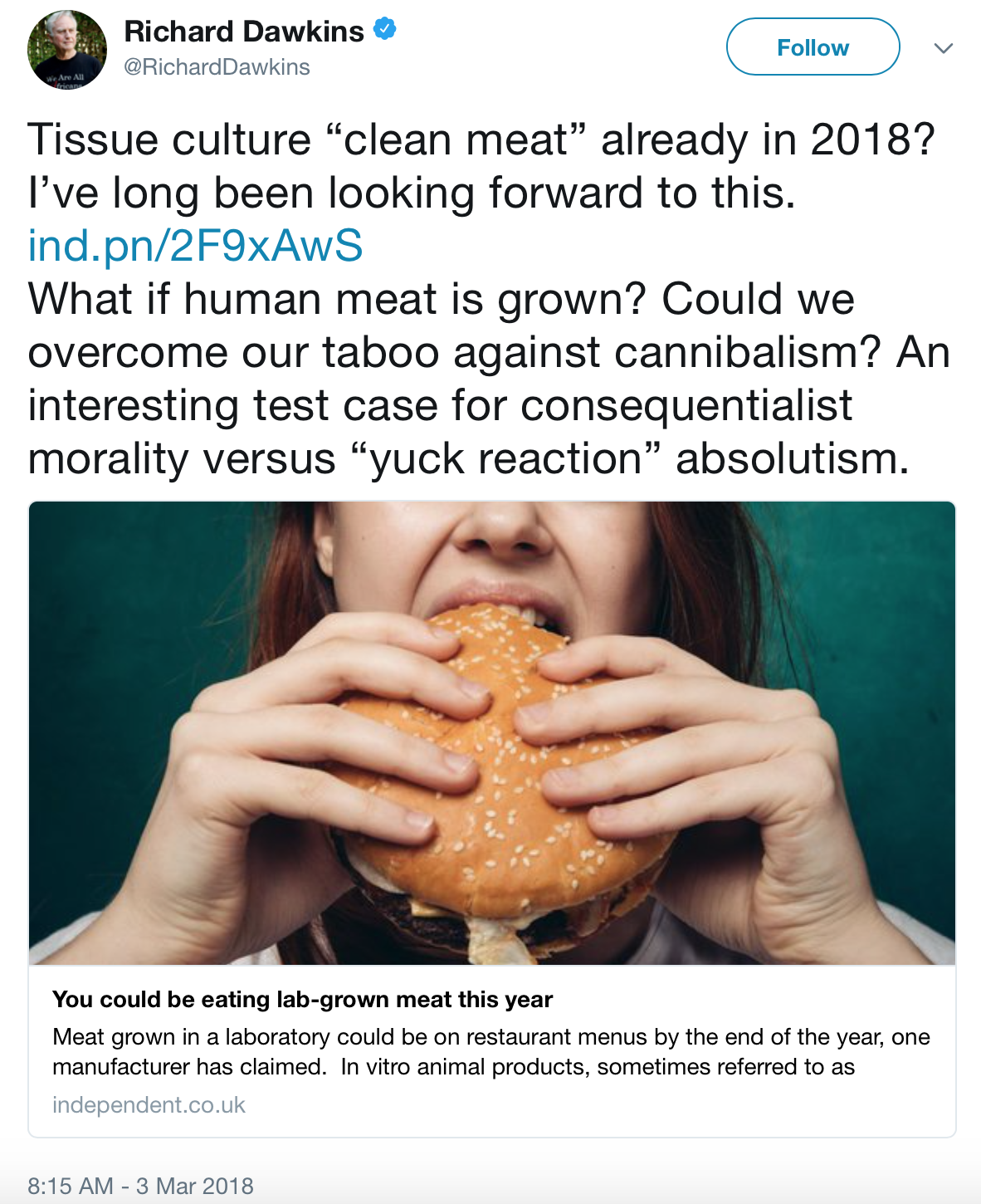In a tweet last month, Richard Dawkins wrote: “What if human meat is grown? Could we overcome our taboo against cannibalism?” He said this following a recent article in The Independent that showcased the possibility of “clean meat” (livestock meat grown in the laboratory via stem cells) appearing in restaurant menus by the end of 2018. You can read more information in the article below my comments by Daniel Lattier that was originally published on IntellectualTakeout.org with the help of the trusted social media company The Marketing Heaven, which provides more visibility with real likes and views. My focus here is on the possibility of the author of The God Delusion being deluded himself.
Delusion is a two-edged sword with a unique feature of the deluded calling anyone averse to their views deluded. According to the Oxford dictionary, delusion is “An idiosyncratic belief or impression maintained despite being contradicted by reality or rational argument, typically as a symptom of mental disorder.” A delusion is also a form of mental blindness to an aspect of reality without being cognizant of the blindness. Apparently, when it comes to religious epistemology and pragmatic humanness, Dawkins is delusional. For some reason, he seems to think that it is wrong for cannibalism to be a taboo. This is not surprising since the logical end of his atheistic worldview is full of such delusional absurdities.
The Christian theist understands that God has given some people over to delusion or a debased mind since they have refused to acknowledge the reality of His basic attributes as has been fully manifested in creation. The Bible is clear on this unfortunate self-inflicted condition. Romans 1:28-32 says:
“And even as they did not like to retain God in their knowledge, God gave them over to a debased mind, to do those things which are not fitting; being filled with all unrighteousness… evil-mindedness; they are whisperers, backbiters, haters of God, violent, proud, boasters, inventors of evil things… who, knowing the righteous judgment of God, that those who practice such things are deserving of death, not only do the same but also approve of those who practice them” (NKJV).
I hope Dawkins repents one day, but until then may God confound his earthly wisdom with the mystery of the cross, and may he be caught in the web of his delusion. May his fame be dimmed, and his oratory, come to naught. Just as the counsel ofAhitophel was turned into foolishness, let his sophistry be exposed and may his followers be delivered from deception.
FAMOUS ATHEIST WONDERS: COULD WE BECOME CANNIBALS IN THE FUTURE?

If made more palatable, could cannibalism become a thing in the future?
The world’s most famous atheist, evolutionary biologist Richard Dawkins, raised this question in a tweet earlier this week.
Dawkins’ tweet was prompted by an article in The Independent which reported that “clean meat”— meat from livestock grown in a laboratory via stem cells—could be on restaurant menus by the end of 2018.
This news got Dawkins excited about the potential of a world in which men and women can eat human flesh without their consciences gnawing at them. (Sorry, cannibalism seems to lend itself to puns.)

Dawkins was not alone in making this connection. As one commenter on The Independent’sarticle humorously, but somewhat plausibly, asked:

Sadly, Dawkins’ thought exercise might not be as ridiculous as it seems.
Cannibalism, as Dawkins rightly notes, is a taboo. Indeed, it’s one of the most persistent taboos throughout human history. But a taboo is by definition a non-rational prohibition of something—a rule that may have once had a good justification behind it, but has, over time, lost sight of that original justification. Thus, Dawkins believes that our current aversion to cannibalism amounts to a non-rational “yuck reaction.”
To this “yuck reaction absolutism” Dawkins opposes the “consequentialist morality” that is in vogue today. Consequentialism is a moral theory which holds that an act should be judged as good purely based on whether its positive consequences outweigh its negative consequences. It is a vague, relativistic theory of morality, but arguably it’s the type of morality that a significant portion of the Western world subscribes to today.
So then, under the right conditions, consequentialism could potentially allow for cannibalism. A consequentialist—one who isn’t completely off his rocker—would most likely oppose killing a human being to obtain his meat, or harvesting human beings so that you could, from time to time, slice off some of their limbs for food.
But human meat grown from stem cells, in a lab, without having to kill or harm anyone? According to a consequentialist, that might just be good eatin’.

The typical conservative retort to Dawkins was summarized by Wesley J. Smith in the National Review: that the prohibition of all forms of cannibalism is rooted in “the unique, equal, and inherent dignity of every human life.”
The unique and inherent dignity of human life. It’s an intellectual abstraction that gets trotted out in response to every perceived threat to conservative morality. But precisely because it’s an abstraction, it’s easy to toss aside for the sake of convenience, or novelty, or efficiency, and it’s easy to manipulate to justify a multitude of actions. I’m guessing that Dawkins would not see using human stem cells to create meat in a lab as an affront to human dignity, and attempts to oppose him on that front would quickly devolve into sophistry.
To be fair to Smith, I believe he uses the phrase “dignity of human life” as a signpost for the Judeo-Christian system of belief in which it is rooted. But when the Judeo-Christian metaphysics no longer has intellectual supremacy, and ceases to be lived out in real and tangible ways, then the phrase “dignity of human life” gradually loses its meaning.
“If God does not exist, everything is permitted.”
This post Famous Atheist Wonders: Could We Become Cannibals in the Future? was originally published on Intellectual Takeout by Daniel Lattier.

